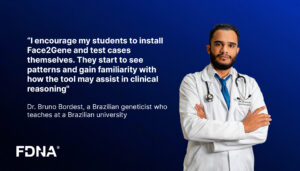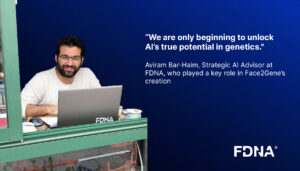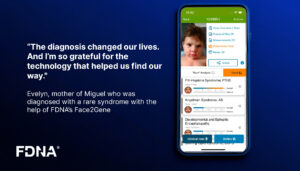WIRED
“The mutation suggested he had a disease called Coffin-Siris syndrome. But Patient Number Two didn’t have that disease’s typical symptoms, like sparse scalp hair and incomplete pinky fingers. So, doctors, including Karen Gripp, who met with Two’s family to discuss the exome results, hadn’t really considered it. Gripp was doubly surprised when she uploaded a photo of Two’s face to Face2Gene. The app, developed by the same programmers who taught Facebook to find your face in your friend’s photos, conducted millions of tiny calculations in rapid succession—how much slant in the eye? How narrow is that eyelid fissure? How low are the ears? Quantified, computed, and ranked to suggest the most probable syndromes associated with the facial phenotype. There’s even a heat map overlay on the photo that shows which features are the most indicative match.“
The article discusses how advancements in artificial intelligence (AI) are enabling computers to diagnose health problems by analyzing medical data. AI technologies, including machine learning and neural networks, can now examine facial images, genetic information, and patient histories to identify conditions like cancer, heart disease, and rare genetic disorders. These systems improve diagnostic accuracy and efficiency, offering significant potential to transform healthcare practices. The article highlights several pioneering AI healthcare applications and emphasizes the role of big tech companies and startups in driving this innovation. AI’s ability to ‘see’ health issues marks a revolutionary step in early detection and personalized treatment.


